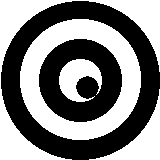Longways for six; in three parts (2nd Ed., 1652).
| MUSIC | MOVEMENTS | |
| First Part. | ||
| A1 | 1–4 | All lead up a double and fall back a double to places (r.s.). |
| 5–8 | Partners set and turn single. | |
| A2 | 1–8 | All that again. |
| B | 1 | First and second couples change places, first couple going down between the second (sk.s.). |
| 2 | First and third couples change places, third couple coming up between the first (sk.s.). | |
| 3–4 | Second and third couples change places, second couple going down between the third (sk.s.). | |
| 5 | First and second couples change places, first couple coming up between the second (sk.s.). | |
| 6 | First and third couples change places, third couple going down between the first (sk.s.). | |
| 7–8 | Second and third couples change places, second couple coming up between the third (sk.s.). | |
| Second Part. | ||
| A1 | 1–4 | Partners side (r.s.). |
| 5–8 | Partners set and turn single. | |
| A2 | 1–8 | All that again. |
| B | 1–8 | Same as B in First Part, partners facing each other with both hands joined (sl.s.). |
| Third Part. | ||
| A1 | 1–4 | Partners arm with the right. |
| 5–8 | Partners set and turn single. | |
| A2 | 1–8 | Partners arm with the left, set and turn single. |
| B | 1 | First man changes places with first woman, passing by the left (sk.s.). |
| 2–4 | Half the Straight hey-for-three (Fig.12, p.54) on each side (sk.s.). | |
| 5 | First man changes places with first woman, passing by the right (sk.s.). | |
| 6–8 | Half the Straight hey-for-three on each side to places (sk.s.). |
The first figure is simply a mirror ("Grimstock") hey; the second is generally done as the same, but instead of just taking inside hands with partner to lead in from the ends, face partner take two hands and slip sideways (pushing apart when you get to the middle to let the far couple slip in.
Note that in the graded series ("by Cecil Sharp, edited by Maud Karpeles") there is a clearer description for the figures:
First Part
The three men go the hey-for-three, whilst the three women do the same, first and second men passing right shoulders, and the first and second women passing left shoulders. That is, the first couple passes in between the second couple and outside the third.
Second Part
As in B, First Part, partners facing each other and joining both hands. The first man and first woman will therefore start by making arches with their raised hands and passing them over the heads of the second couple, and they will then lower their hands and will pass under the arches made by the third couple, and so on (sl.s.).
Third Part
First man changes places with the first woman, passing left shoulders, and half-hey on each side (sk.s.).
First man changes places with the first woman at the bottom of the Set, passing right shoulders, and half-hey on each side, first and second men passing left shoulders, and first and second women the same (sk.s.).
This makes it clear that in the second figure you are expected to take two hands with your partner and keep hold for both going under and over other couples. I've never seen anyone manage this.
I think Playford's words "obviously" say: mirror hey; dip and dive; cross hey (i.e. with ones crossing both times as they lead in from the ends).
Page transcribed by Hugh Stewart
